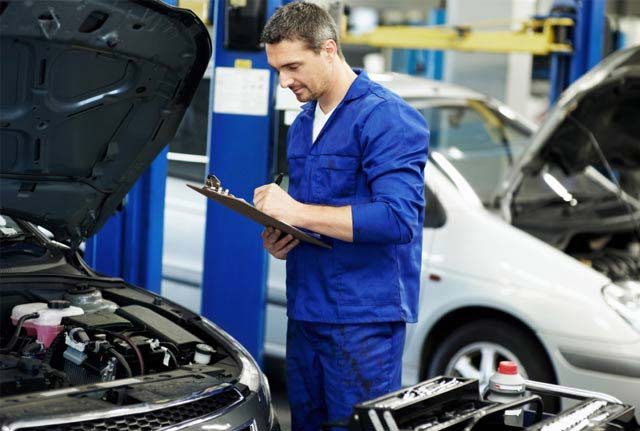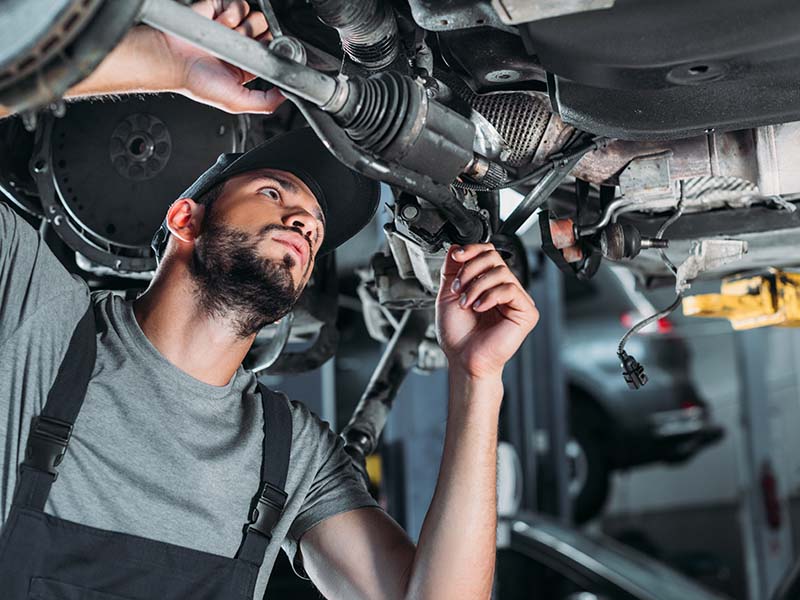All Categories
Featured

Maintaining your vehicle in peak condition needs focus to different maintenance tasks, with fluid checks being amongst one of the most crucial. Automobile liquids play critical duties in making sure smooth procedure, safety, and long life. Neglecting liquid maintenance can lead to considerable performance problems or pricey repair work. Listed below, we'll explore the importance of monitoring and keeping your car's liquids and suggestions for doing so properly.
- Engine Oil: Securing Essential Parts. Engine oil guarantees that the moving components of your engine stay moisturized, decreasing friction and stopping overheating. In time, engine oil breaks down or comes to be polluted, decreasing its effectiveness. Without correct lubrication, engine parts can break swiftly, resulting in decreased performance or full failing.
Just How to Keep: Check the oil degree utilizing the dipstick and round off if required. Follow your vehicle's service routine for oil changes, normally every 3,000 to 7,500 miles, depending upon the sort of oil and your driving practices. 2. Coolant: Managing Engine Temperatures. Coolant, or antifreeze, aids regulate your engine's temperature, protecting against overheating in summer season and cold in winter season. As it circulates, coolant absorbs excess heat and resolves it through the radiator. Over time, pollutants can develop, or the fluid might weaken, minimizing its performance.

Exactly How to Preserve: Consistently examine coolant levels in the storage tank and inspect for leakages or discoloration. Flush and change coolant as suggested, usually every 2 to 5 years. 3. Transmission Fluid: Smooth Equipment Procedure. Transmission fluid lubes the transmission system and ensures smooth equipment shifts. A properly maintained transmission liquid stops overheating and shields internal elements from wear. Stopping working to preserve this fluid can lead to costly repair services or replacements.
How to Maintain: Examine the fluid levels (if your automobile has a dipstick for transmission fluid) and monitor its color. Dark or burnt liquid indicates it's time for a modification, typically every 30,000 to 60,000 miles. 4. Brake Fluid: Ensuring Safety. Brake liquid is crucial for moving stress from your foot on the brake pedal to the stopping system, enabling your car to quit properly. With time, brake liquid can take in moisture, reducing its boiling point and jeopardizing braking efficiency.
Exactly How to Preserve: Examine the brake fluid degree and problem. If it appears dark or unclean, have it changed. Many suppliers advise changing brake liquid every two years or as needed. 5. Power Guiding Fluid: Easy Ability To Move. Power guiding fluid enables for smooth and easy steering. Low levels or contaminated liquid can make guiding difficult, boosting the danger of mishaps.
Exactly How to Preserve: Evaluate the liquid consistently and fill up if degrees are reduced. Watch out for leaks, which might result in steering system damage if unsettled. 6. Windshield Washing Machine Liquid: Clear Presence. Though not associated with efficiency, windshield washing machine fluid is essential for preserving presence. It aids keep the windscreen clean, specifically throughout negative weather or when dust builds up.

Just How to Preserve: Fill up the reservoir as needed and make use of washing machine fluid created for your climate to stop cold or spotting. Ideal Practices for Liquid Maintenance. Comply with the Maker's Arrange: Describe your automobile's owner manual for maintenance periods details to your cars and truck. Screen for Leaks: Finding fluid leakages early can protect against extreme damages. Search for pools or discolorations under your car. Utilize the Correct Fluids: Always utilize fluids suggested by your lorry's manufacturer to avoid compatibility problems. Take Notice Of Indication: Control panel caution lights, unusual smells, or uncommon performance can indicate fluid-related issues. The Benefits of Normal Fluid Checks. Improved Efficiency: Fluids in excellent problem assistance all systems run smoothly. Extended Lifespan: Appropriate lubrication and air conditioning prevent premature wear and tear on elements. Improved Safety: Brake fluid and coolant are vital for risk-free driving. Cost Cost savings: Dealing with fluid issues early can stop expensive repair work later on. Conclusion. Monitoring and keeping your vehicle's liquids is a uncomplicated however crucial part of auto ownership. Whether it's oil, coolant, or brake liquid, remaining proactive with upkeep is the key to long-lasting vehicle wellness.
Latest Posts
Explore Auto Services & More: Comprehensive Repair Options from Montclare Auto Repair
Published en
1 min read
Learn About Oil Changes & More: Comprehensive Repair Options from Montclare Auto Repair
Published en
1 min read
Reliable Industrial Roof Providers by Weathercraft
Published en
1 min read
More
Latest Posts
Explore Auto Services & More: Comprehensive Repair Options from Montclare Auto Repair
Published May 26, 25
1 min read
Learn About Oil Changes & More: Comprehensive Repair Options from Montclare Auto Repair
Published May 25, 25
1 min read
Reliable Industrial Roof Providers by Weathercraft
Published May 24, 25
1 min read